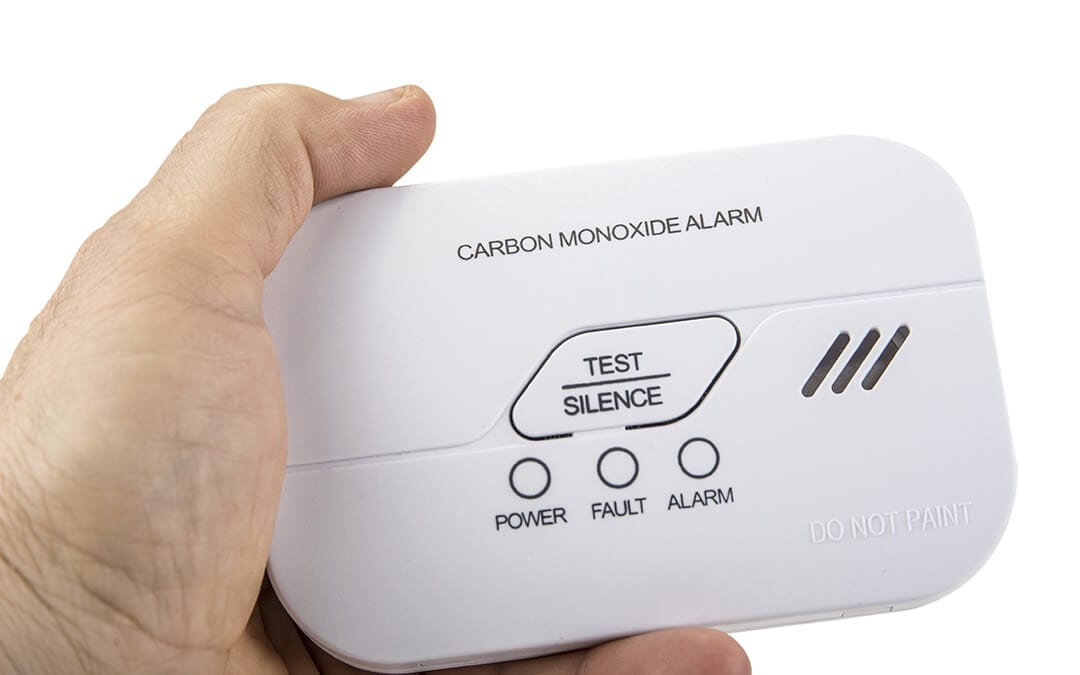Cooler air is moving in, bringing with it a concern about carbon monoxide (CO) poisoning in homes. Even in the South, we experience cooler months when the heat will occasionally be turned on. As this happens, the threat for CO poisoning increases when gas appliances and heating equipment aren’t properly maintained.
The United States sees the most carbon monoxide poisoning deaths from November to February. Fortunately, companies like Custom Klimates, your Georgia HVAC contractor, are here to provide the necessary tips to keep your home safe this fall and winter.
Signs Carbon Monoxide is Present
Some carbon monoxide detectors may only signal an alarm when an elevated level of gas is present. However, smaller levels can also cause side effects. As a result, HVAC contractors urge homeowners to keep aware of their surroundings and pay attention for headaches, fatigue, nausea and chest pains.
Many CO leaks will often come from a heating and cooling system in a home or business. Semi-annual service appointments and maintenance calls can help prevent the occurrence of these issues.
Homeowners who aren’t sure about their HVAC system should contact their local HVAC contractor. A trained professional can ensure the system is operating safely. With proactive maintenance, you can help prevent future leaks and threats to your family’s health and well being.
Call Custom Klimates, your local HVAC contractor, to subscribe to a preventative maintenance agreement. This will help to ensure your system is up to date, and most importantly, all potential leaks are addressed.
Proper Placement of Carbon Monoxide Detectors
The International Association of Certified Home Inspectors (InterNACHI) offers these CO detector installation tips to home and business owners:
- Place detectors within 10 feet of each bedroom door and near all sleeping areas, where they can wake sleepers. The Consumer Product Safety Commission (CPSC) and Underwriters Laboratories (UL) recommend every home have at least one carbon monoxide detector within hearing range of each sleeping area.
- CPSC, UL and the International Association of Fire Chiefs (IAFC) also recommend installation of detectors on every floor of your home, including the basement.
- Install detectors near, above, or inside any attached garage.
- Because carbon monoxide detectors are affected by high humidity or close proximity to gas stoves, install them near but not directly above combustion appliances. For example, this includes furnaces, water heaters, and fireplaces.
- In commercial buildings, place detectors in central locations on every habitable level. Also, install them on the ceiling in the same room as permanently installed fuel-burning appliances, and in every HVAC zone of the building (source: National Fire Protection Association 720).
Between 2010 and 2015, unintentional carbon monoxide poisoning was the cause of 2,244 deaths. In each year, the highest numbers of deaths occurred during the winter months.
In 2015, a total of 393 deaths resulted from accidental carbon monoxide poisoning. Notably, 36 percent of these deaths occurred in December, January, or February.
There are many ways to prevent carbon monoxide poisoning in the home and workplace. InterNACHI recommends these tips:
- Do not burn charcoal inside a home, garage, vehicle or tent.
- Never run a car in an attached garage, even with the garage door open.
- Do not use gas appliances such as ranges, ovens or clothes dryers to heat your home.
- Never operate unvented fuel-burning appliances in any room where people are sleeping.
Need a Carbon Monoxide Detector or HVAC Inspection?
As the leading HVAC contractor in Canton and surrounding areas in North Georgia, Custom Klimates is your partner for safety and comfort. We recommend these additional steps to make sure your home is safe and free of carbon monoxide this winter.
First, always have a service plan in place to have your system inspected by a professional HVAC contractor at least twice a year. Second, clean all vents, ductwork and flues in your home. These easy steps can help prevent mishaps from happening in your home.
Custom Klimates specializes in heating and cooling from repair to service to new installation. So if you want an expert to come in and review your home, contact our professional team of NATE-certified technicians.
Contact Custom Klimates to schedule an appointment today.

